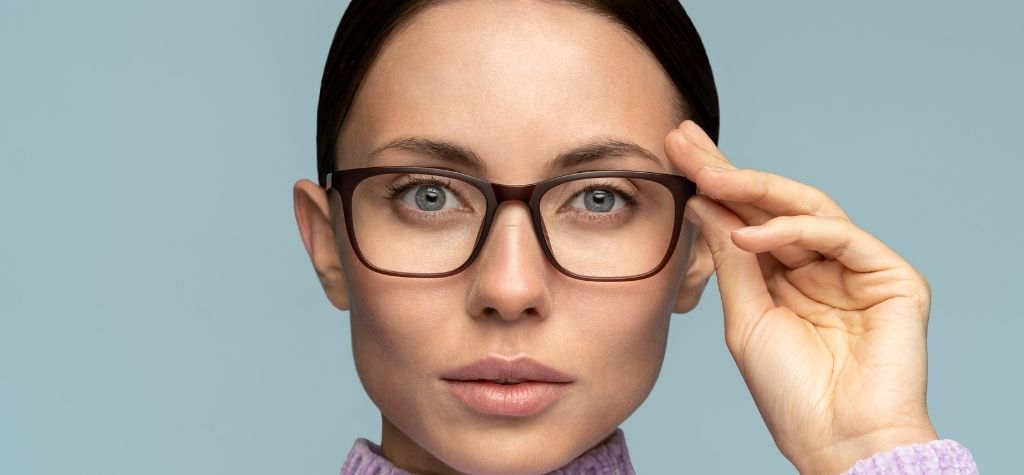If you’ve ever taken off your glasses and felt strangely exposed, you’re not alone. For millions, glasses aren’t just a vision correction tool—they’re a part of who they are. That sudden sense of vulnerability or discomfort when they’re not on your face can feel like walking out the door without your pants. But why do people feel ‘naked’ without their glasses, and what does that really mean?
This phenomenon blends psychology, neuroscience, identity, and cultural perceptions. Understanding it offers fascinating insights into how deeply our self-image is tied to the things we wear every day.
The Psychological Connection to Glasses

Identity and Self-Perception
For many, glasses are a defining feature. Over years, people begin to associate their reflection, their sense of self, and even how others see them, with those familiar frames. Removing glasses can feel like stripping away part of one’s identity.
Glasses as a Social Mask or Shield
Glasses can act as a buffer—a kind of social armor. Just like makeup or a favorite outfit, they can help people feel more secure or in control in social settings.
Emotional Attachment and Dependence
Because they are worn consistently and impact how the world is seen—literally and figuratively—people develop emotional ties to their glasses. They’re not just tools; they’re comfort objects.
How Glasses Shape Self-Image
Perception of Intelligence and Maturity
There’s a long-standing stereotype that glasses = intelligence. Whether or not that’s accurate, many grow up being treated differently because of it, which can reinforce their emotional importance.
Fashion Accessory vs Functional Necessity
Some people see glasses as a style statement—part of their aesthetic. For others, they are simply a necessity. In both cases, they still play a major role in how we see ourselves and how we think others see us.
Feeling ‘Naked’: What It Really Means Psychologically
Vulnerability and Insecurity
Without glasses, many feel more physically and emotionally vulnerable. You might squint, lose facial definition, or feel like your “face” is incomplete, all of which can trigger insecurity.
Loss of Comfort or Routine
The human brain thrives on patterns and routine. Removing glasses can disrupt a long-standing habitual comfort, much like switching sleeping positions or skipping your morning coffee.
Changes in Confidence and Social Behavior
Studies show people may avoid eye contact or reduce participation in social interactions when they’re not wearing their glasses. This temporary shift in behavior mirrors a loss of confidence.
The Neuroscience Behind the Glasses Habit

Visual Cues and Sensory Association
Our brains associate glasses with clarity, both literal and symbolic. Taking them off removes not just vision clarity, but familiar visual landmarks that signal control and preparedness.
How the Brain Adapts to Visual Aids
Long-term glasses users experience neural adaptation, where their brain adjusts processing to rely on them. Removing glasses, even briefly, disrupts this adaptation, causing discomfort.
Cultural and Social Narratives Around Glasses
Media Portrayals and Stereotypes
From Clark Kent’s glasses to the classic “nerd” trope, media has shaped how we view glasses. They’re often portrayed as transformative—remove them, and suddenly a character is “different.”
Stigma and Transformation Narratives
Unfortunately, this also means some stigma still exists. Glasses are sometimes seen as awkward or dorky, making people internalize negative self-perceptions that can flare up when they’re removed.
What Happens When People Switch to Contacts or Surgery
Identity Crisis or Renewal?
For some, switching to contacts or getting LASIK feels empowering. For others, it brings a mini identity crisis—a feeling of loss or detachment from their former visual self.
Coping with the Psychological Shift
Therapists and vision specialists recommend easing into the change gradually. Some people even go back to wearing non-prescription glasses just to feel like themselves again.
Personal Stories and Common Experiences
Anecdotes from Long-Time Glasses Wearers
People often describe feeling “invisible” or “less themselves” without glasses. Some avoid taking photos without them. Others report forgetting they’re not on and still “adjust” phantom frames.
Insights from Eye Care Professionals
Optometrists and psychologists alike note that this emotional reaction is very common and completely normal. Glasses, for many, are a form of psychological grounding.
How to Feel More Comfortable Without Glasses

Confidence-Building Strategies
- Positive self-talk and affirmations
- Trying new looks with or without frames
- Surrounding yourself with supportive voices
Transitional Techniques for Contact Users
- Gradual exposure: alternate days
- Mirror exercises to adapt to your look
- Keeping old frames for comfort in private settings
FAQs: Why People Feel ‘Naked’ Without Their Glasses
Q1: Is it normal to feel uncomfortable without glasses?
Yes, it’s a common and valid emotional response tied to identity, routine, and self-image.
Q2: Does this feeling go away over time?
It can. With gradual exposure and time, most people adapt, especially if switching to contacts or post-surgery.
Q3: Can glasses become part of someone’s personality?
Absolutely. Many view them as a defining personal feature, just like hairstyle or clothing style.
Q4: Are there psychological benefits to wearing glasses?
Yes. Glasses can boost confidence, create a sense of preparedness, and even affect how others perceive you.
Q5: Do people see me differently without glasses?
They might—initially. But usually, it’s your perception of their reaction that matters more than the reality.
Q6: Should I talk to someone if this feeling becomes overwhelming?
Yes. If it’s impacting your confidence or daily life, speaking to a therapist or counselor can help.
Conclusion: Glasses and the Sense of Self
So, why do people feel ‘naked’ without their glasses? It’s a powerful mix of emotional attachment, identity, habit, and perception. These frames do more than correct your vision—they frame your world. Recognizing this can help you navigate the transition, embrace your look, and most importantly, stay confident with or without them.

